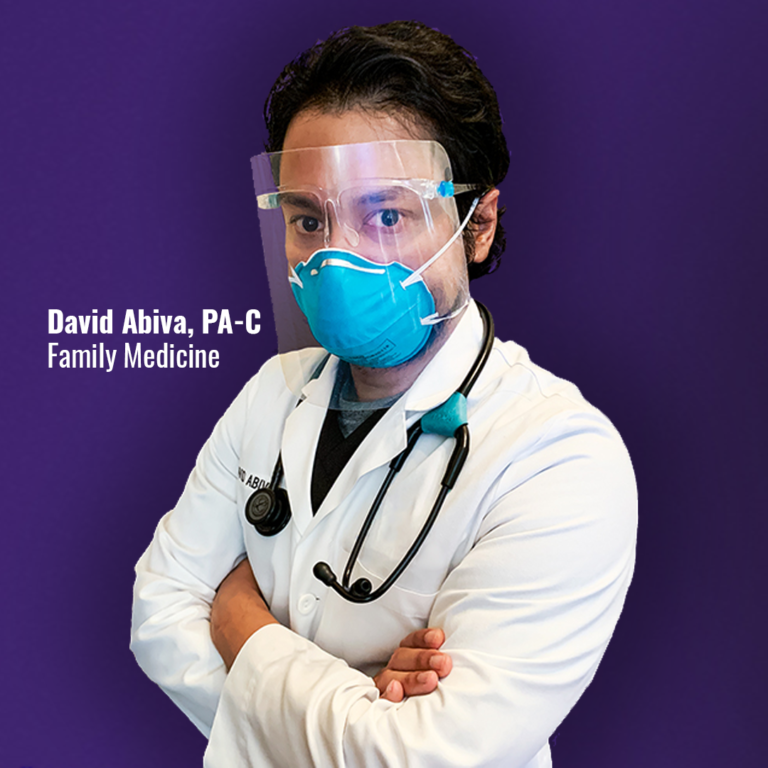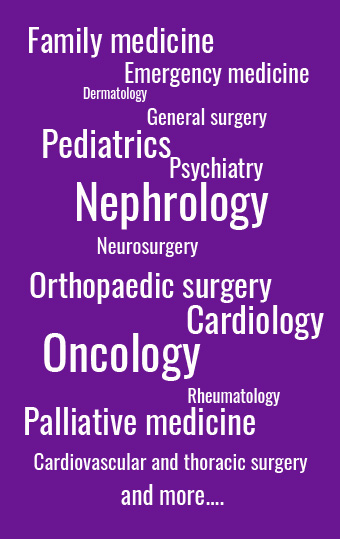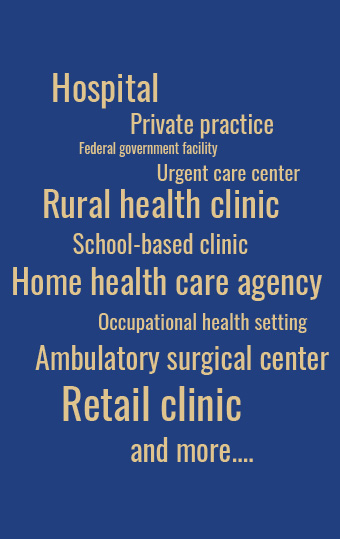Become a
Board Certified PA
Make a Difference in Health Care as a Board Certified PA
If you’re considering a career in health care, becoming a PA could be a rewarding career choice. PAs work in every specialty and setting, report high job satisfaction, and the profession was ranked as the #2 health care job by U.S. News and World Report in 2024.
Explore this page to learn more about PAs, how they practice and why you should join the more than 178,700 PAs across the United States!
What Do Board Certified PAs Do?
PAs treat millions of patients every week. They perform routine medical services and intricate procedures, including:
- Diagnose and manage diseases, including chronic illnesses
- Prescribe medications
- Assist in major surgeries
- Perform minor surgeries
- Monitor and manage hospital inpatients
- Order and interpret lab tests
- Perform physical exams
- Obtain medical histories
- Educate patients on treatment and health maintenance

What Do Certified PAs Do?
Certified PAs treat millions of patients every week. They perform routine medical services and intricate procedures, including:
- Diagnose and manage diseases, including chronic illnesses
- Prescribe medications
- Assist in major surgeries
- Perform minor surgeries
- Monitor and manage hospital inpatients
- Order and interpret lab tests
- Perform physical exams
- Obtain medical histories
- Educate patients on treatment and health maintenance
Number of patients seen per year by PAs
Where Do Board Certified PAs Work?
PAs work in every state and in every medical and surgical specialty, from family medicine to neurosurgery, and in every setting, from a rural health clinic to a hospital in the busiest of cities. The PA-C credential gives PAs the flexibility to change specialties throughout their careers. So, whether your interests change, or you decide to move into a specialty where there is a need for more providers, the generalist foundation of PA certification will allow you to do that.
Some of the specialties and settings in which PAs practice are shown below. Check out NCCPA’s latest report on Certified PA practice for a more comprehensive list.
Specialities
Locations
Settings
Resources for Future PAs of all Ages
You’re never too young to learn about the PA profession. Click on the resources below to get started!
Why Should I Become a Board Certified PA?
Flexibility: PAs are educated as generalists, so they have the ability to change specialties throughout their careers.
Reputation: PAs have a strong reputation for high-quality patient care. Created to meet the increased demand for patient care in the 1960s and continue serving on the front lines today, most recently during the COVID-19 pandemic, the PA profession constantly demonstrates its commitment to patient care.
Job Satisfaction: PA consistently ranks as one of the top jobs in health care and the top job in the United States with reports of a work/life balance, comfortable salaries, and flexibility contributing to a high degree of job satisfaction. According to a report by NCCPA, 84% of all Certified PAs are completely or mostly satisfied with their present job.
Employment Outlook: According to the U.S. Bureau of Labor Statistics, employment of PAs is projected to grow 27% from 2022 to 2032, much faster than the average for all occupations. As demand for health care services grows, PAs will be needed to provide care to patients.
Salary: According to research conducted by NCCPA, PAs earn an average annual income of $120,000.

How Do I Become a Board Certified PA?
Are you an educator that would like to have a PA speak to your students?
PAs are ready, and would love to speak to your students about this amazing profession. To schedule a presentation please contact us.
Contact Us






